Below is the code in which I have few doubts as in JAVA there is no pass by reference or pass by address. Then why is there change in output after calling of methods? And also want to know internal mechanism of JAVA after a method call?
class Language
{
String languageID;
String name;
public Language(){}
public Language(String id, String name)
{
this.languageID = id;
this.name = name;
}
@Override
public String toString() {
return "Language id-->" + languageID + " Name-->" + name;
}
}
public class SwapDemo {
public static void swap()
{
int a = 10, b= 5;
System.out.println("Before Swap : A-"+a+" B-"+b);
a = a+b;
b = a-b;
a = a-b;
System.out.println("After Swap : A-"+a+" B-"+b);
a = a^b;
b = a^b;
a = a^b;
System.out.println("After Swap : A-"+a+" B-"+b);
}
public static void swap(Language e1, Language e2)
{
Language temp = new Language();
temp = e1;
e1 = e2;
e2 = temp;
}
public static Language method(Language addit)
{
addit.name = "C++";
addit = new Language();
addit.name = "Harshal";
return addit;
}
public static void main(String[] args) {
Language l1 = new Language("1", "C");
Language l2 = new Language("2", "Java");
System.out.println("Before swap of employees");
System.out.println("Language 1-----> "+l1.toString());
System.out.println("Language 2-----> "+l2.toString());
swap(l1, l2);
System.out.println("After swap of employees");
System.out.println("Language 1-----> "+l1.toString());
System.out.println("Language 2-----> "+l2.toString());
Language t = method(l1);
System.out.println("Changing "+ l1.name);
System.out.println("Changing "+ t.name);
}
}
